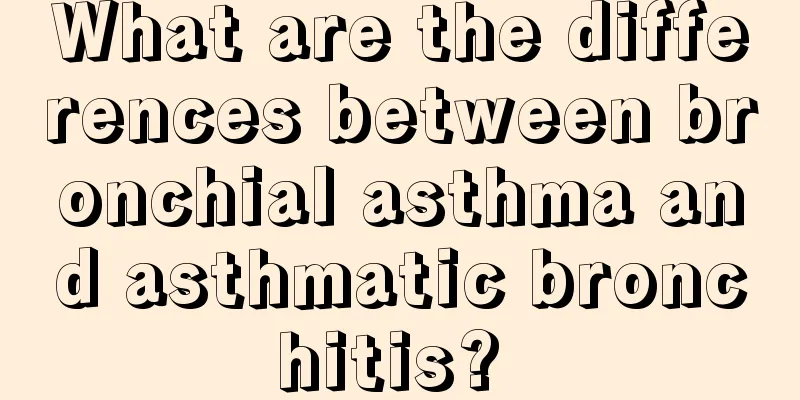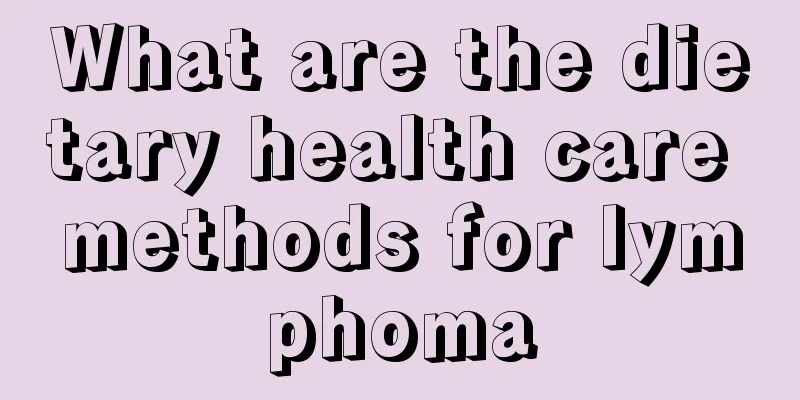What are the differences between bronchial asthma and asthmatic bronchitis?

|
Many patients often confuse bronchial asthma and wheezing asthma. The main reason is that they have many similarities. For example, both diseases will cause symptoms such as wheezing and coughing up phlegm when they occur. However, the difference between the two diseases is also very large. If you cannot distinguish between the two diseases, you cannot treat them correctly. Let's take a look at the differences between bronchial asthma and wheezing bronchitis. (1) In terms of the age of onset, most patients with bronchial asthma develop the disease in childhood or youth, and about 1/5 of the patients have a family history of the disease. Patients with asthmatic bronchitis are mostly middle-aged or elderly people with no family history. (2) From the perspective of the season of onset and the characteristics of the attacks, bronchial asthma has a higher incidence in spring and autumn and is characterized by paroxysmal attacks. After the triggering factors are eliminated and the attacks stop, the patient can return to normal without any adverse symptoms, just like a normal person. Asthmatic bronchitis often occurs in cold seasons, with repeated acute attacks as the main manifestation. After the attack is relieved, there is still a long-term chronic cough, wheezing, and sputum. (3) From the perspective of clinical symptoms, bronchial asthma generally does not have a history of chronic cough or sputum production, but is characterized by wheezing. The associated expectoration is mild. Asthmatic bronchitis is often accompanied by wheezing after several years of coughing and expectoration, and the expectoration is more severe. Most cases are aggravated by upper respiratory tract infection. (4) In terms of physical signs, bronchial asthma is mainly characterized by wheezing in both lungs; while in wheezing bronchitis, in addition to wheezing, the lungs often have moist crackles. (5) From the perspective of drug treatment, traditional Western medicine uses bronchial spasmolytic drugs such as aerosol inhalation to treat acute attacks of bronchial asthma, which is very effective at the time and can temporarily relieve symptoms. Traditional Chinese medicine is increasingly recognized by patients for treating chronic diseases such as bronchial asthma, and antibiotics are the main means of controlling infection in acute attacks of asthmatic bronchitis. The above is some introduction to the differences between bronchial asthma and asthmatic bronchitis. Patients must understand the differences between these two types of diseases so that they can receive correct treatment and not delay their own condition. This is very important. Patients should also pay more attention to their diet and avoid eating spicy and greasy foods. |
<<: Is facial paralysis contagious?
>>: What are the sequelae of herpes zoster?
Recommend
How to exercise if you don’t have good physical strength?
People often say that life lies in movement, and ...
Can lung cancer be transmitted to others? Introduction to the infectiousness of lung cancer
Lung cancer is a common disease in our daily life...
What causes pain when pressing on left ribs?
If you feel pain when pressing on your left ribs,...
What are the taboos of eating Gastrodia elata
Nowadays, many people like to eat Gastrodia elata...
Chin is dry, flaky and red
Some people have naturally sensitive facial skin,...
Can glutinous rice be soaked for three days?
Jiangmi is actually what we often call glutinous ...
Feeling hot in your stomach?
If you feel hot in your stomach, this phenomenon ...
When is the best time to go for a gynecological examination?
There are several situations in which women must ...
Common infectious diseases in winter
Every season is prone to some infectious diseases...
What are mites
Mites are actually tiny animals that are closely ...
What's wrong with renal polyps
Renal polyps do not require treatment in the earl...
How to prevent bladder cancer
How to prevent bladder cancer? Bladder cancer is ...
Is there no cure for pancreatic cancer jaundice?
Is there no cure for pancreatic cancer jaundice? ...
Specific hypoglycemic drugs
There are many kinds of blood sugar lowering drug...
Causes of cold hands and feet and headaches
Cold hands and feet that occur in different seaso...









